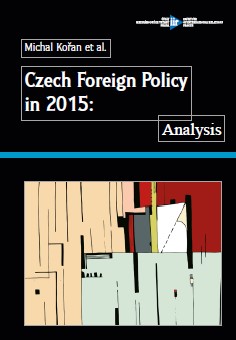Visegrad cooperation, Poland, Slovakia and Austria in Czech foreign policy
Visegrad cooperation, Poland, Slovakia and Austria in Czech foreign policy
Author(s): Michal Kořan
Subject(s): Political history, Government/Political systems, International relations/trade, Security and defense, Political behavior, Comparative politics, Present Times (2010 - today), EU-Approach / EU-Accession / EU-Development
Published by: Ústav mezinárodních vztahů
Keywords: Visegrád Cooperation; Central European Dimension; Czech Republic; foreign policy; Defense and Security;
Summary/Abstract: The analysis for the year 2014 stated that Central Europe acquired a position in the Czech political debate in 2014 that it had not had at least since the 1990s. The year 2015 moved this maximum position a bit higher, but the reasons for this prominence are definitely not encouraging. In 2015, the Czech Central European policy was mainly affected by the increasing political crisis in Central Europe and in Europe in general, by the international political development, by the lingering domestic political debate about the “Czech” Central Europe, and, last but not least, in terms of the execution of power, also by the Czech Republic’s preparation and take-over of the presidency in the Visegrad Group in July 2015. The Czech Republic took over the presidency of the Visegrad Group from Slovakia, perhaps in the most turbulent conditions of the entire history of the region, at least since its joining the EU, but probably since the fall of the Iron Curtain.
Book: Czech Foreign Policy in 2015: Analysis
- Page Range: 118-140
- Page Count: 23
- Publication Year: 2017
- Language: English
- Content File-PDF

